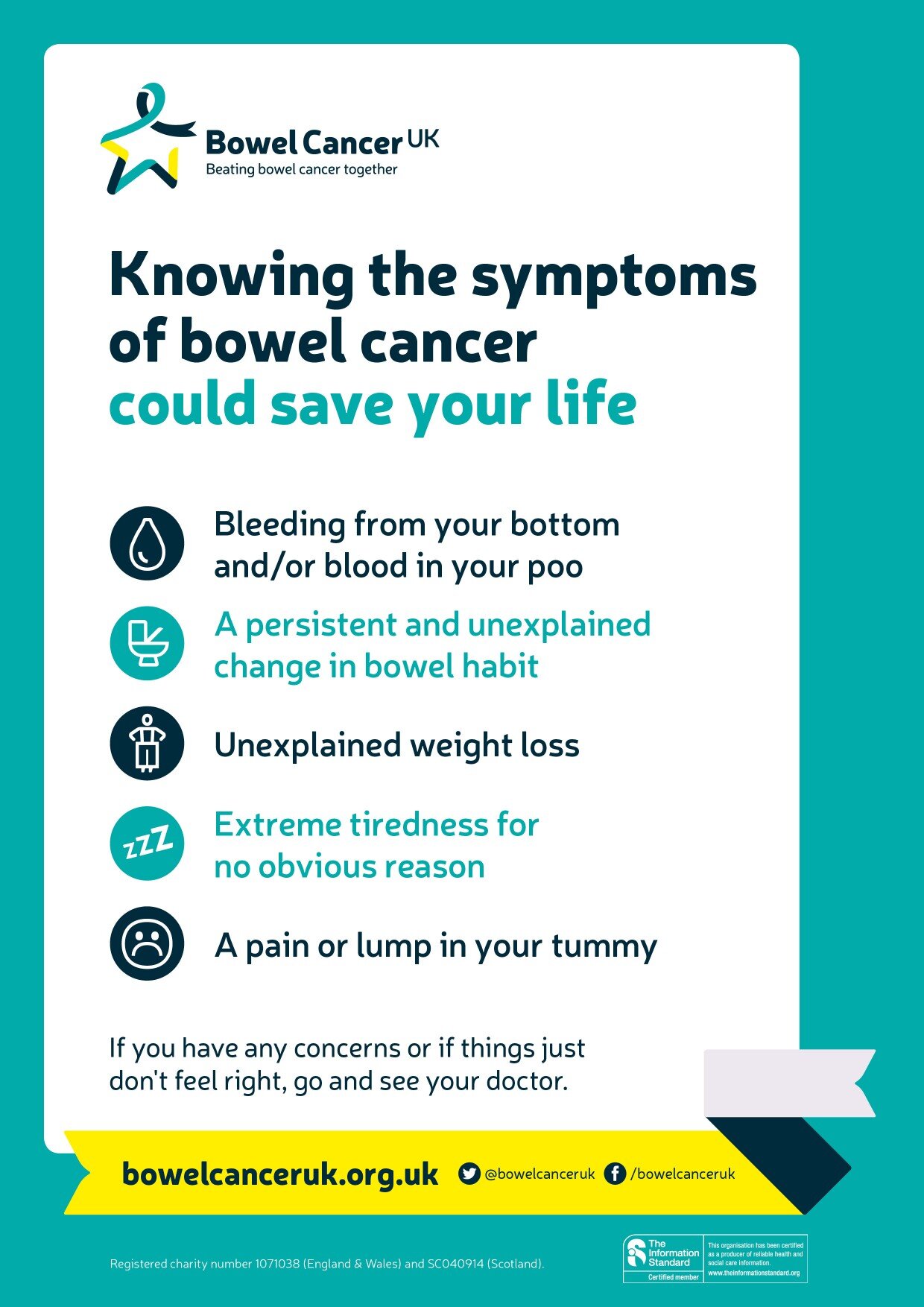I know it might feel uncomfortable talking about your pooping habits, but the stats show it’s SO important to catch it early – so please don’t worry in silence.
What is colon cancer?
Colon cancer is a type of bowel cancer that affects the large intestine (colon). It often starts with growths called polyps on the inner lining of the colon.

Who’s affected?
Colon cancer is the third biggest cancer killer in the world. And, while more than nine out of ten new cases (94%) are diagnosed in people over the age of 50, and nearly six out of ten cases (59%) are diagnosed in people aged 70 or over, it can affect people at any age.
But there’s positive change happening. Rates of bowel cancer and the number of people dying have been decreasing – likely because of early diagnosis and better treatment.
What can you do to reduce the risk?
Share the below warning signs with your friends and family. Let’s get everyone talking about their guts and get rid of the taboo!
- Always be on the safe side and don’t ignore symptoms. If you’re experiencing any of the signs, see your GP or family physician: unintended weight loss, blood in your poop, low blood iron levels and unexplained tiredness, fever, or persistent changes in poop habits (especially if aged 50+). Rest assured that these symptoms can occur in people WITHOUT colon cancer, so please don’t jump to any conclusion on your own.
- Eat more fibre and plants. While no diet changes will make you immune, a powerful study pooling together evidence from millions of people found that increasing fibre intake by just 8g a day (equivalent of a cup of baked beans; a portion of hummus and wholegrain crackers; a pear and handful of almonds; or a large potato with the skin on) is linked with reducing the risk of colon cancer by 8%.













